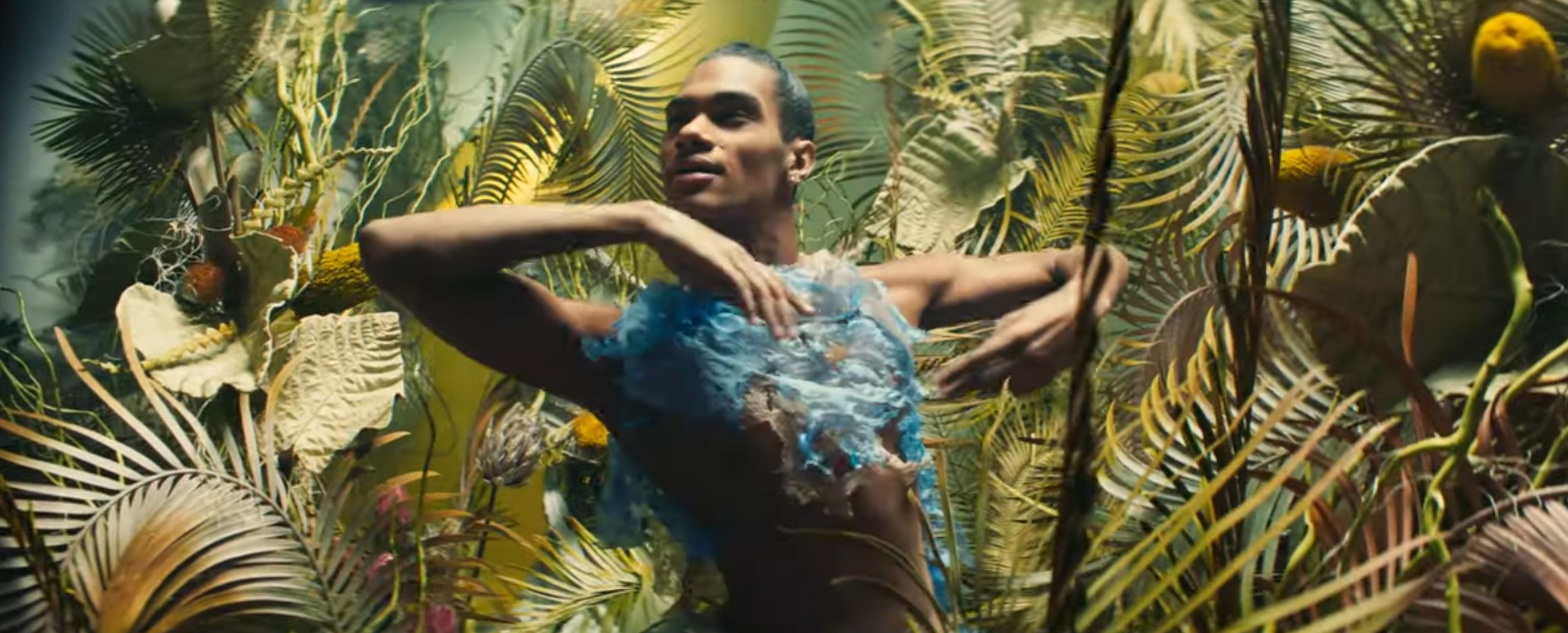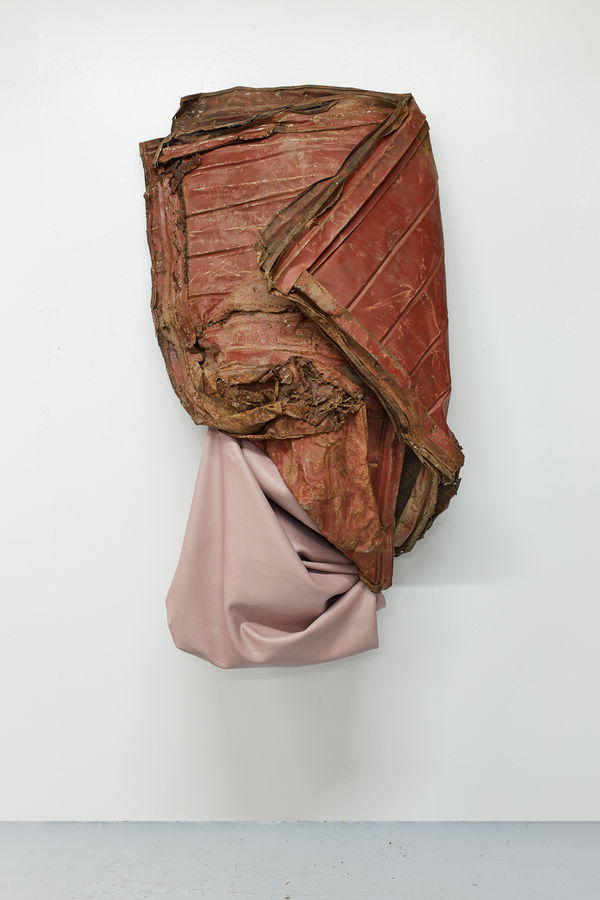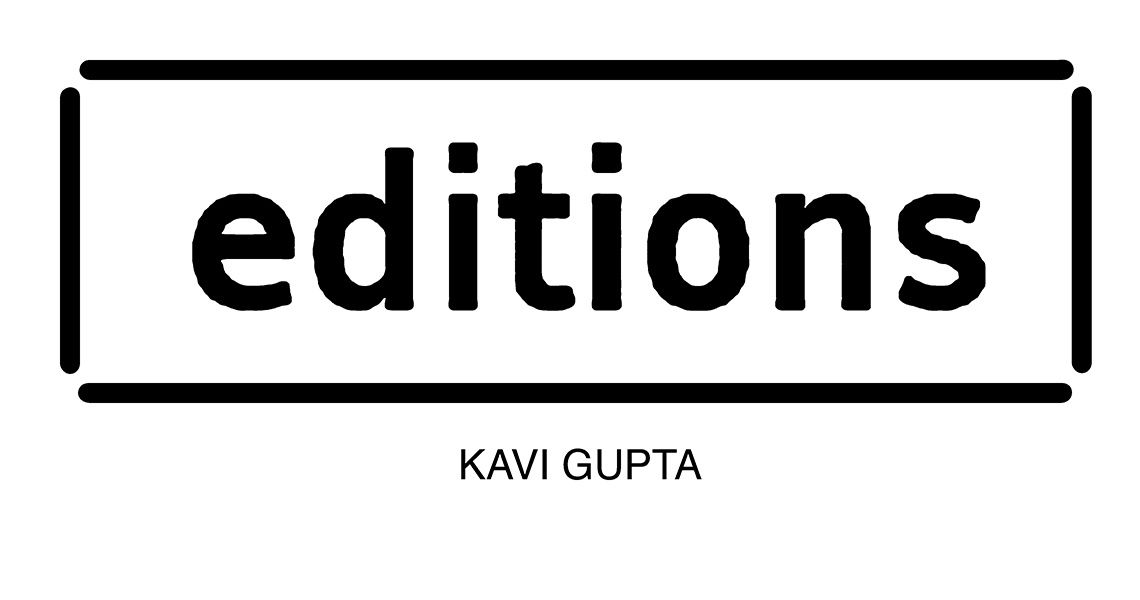-
-
FROM THE INTERVIEW:
"I was thinking about how I’m being affected by this, and the truth is I don’t know. But there are parts of my upbringing that were influential. I grew up in the country, in Defiance, Missouri. I was kind of raised in an apocalyptic mindset. My parents when I was born kind of lived off the grid. We had eight acres of land and my dad commuted every day to the city for work. There was something about their mindset that poured out onto me, like the realization that everything is somewhat ephemeral, and it is important to be independent and to be able to take care of yourself, and make things for yourself, and grow food for yourself."
-
"I’ve always been interested in process. I’m not so interested lately in the outcome or the product. Those are treasures that we have that represent moments of discovery. I’ve been doing a lot more research around process, and phenomenology, and the language of creating. What is this driving force of making? What is the new dialogue within process for artists? I think the value of understanding process is this idea of bringing the awareness of light to something. How can I see what’s going in my work without taking a step back? That puts me in a different place where I can see things clearly or justify things in a different way."
-
"In regard to this, our current situation, I’ve been thinking, “What can we do?” I really think that it’s so much about the most immediate things around me. How can I be more gentle towards my mom? How can I be more available for my neighbors? How can I share my experiences and resources with those who are being crushed by these circumstances? When people are confronted with the fleetingness of life, and the ephemerality of it, a lot of bullshit gets cut out." -Kennedy Yanko
-
ART IN LOCKDOWN LIVE: REVISITING KENNEDY YANKO'S OUR VALENCE
FRIDAY, MAY 29, 6:30 PM EST | ZOOMFILM SCREENING FOLLOWED BY KENNEDY YANKO IN CONVERSATION WITH LUTFI JANANIA, ZACHARY TYE RICHARDSON, AND TESSA FERREYROS

Still From Our Valence, 2020
Please join us for a screening of Our Valence, a film by Kennedy Yanko in collaboration with Lutfi Janania with performance by Zachary Tye Richardson, curated by Tessa Ferreyros for Art in Buildings. In it's original iteration Our Valence was a performance-driven installation comprised of exotic florals, organic material, found metal and paint skins, and narrative bodily movement. It was a somaesthetic enactment of creating the indivisible: building the building blocks of matter and representing the personifying moment when seemingly opposite forces harmonize. Our Valence exists as the repetitive moment that begins and ends again and again. It must occur before life can be seen, felt, heard, or perceived as a whole.
We invite you to revisit the experience of Our Valence via film with Kennedy and her creative collaborators on the evocative piece. The evening will begin with a screening of the Our Valence film and will be followed by a live conversation.This edition of Art in Lockdown will be held live on Zoom. To join us please click the RSVP button below. A video recording of the talk will be available across social media platforms and the Kavi Gupta newsletter in the following days.
Behind the scenes of Our Valence, 2020
-
About Kennedy Yanko
Each time Kennedy Yanko (b. 1988, USA) enters a metal yard or a demolition site in search of new materials, she begins an intuitive process of attraction— a process Yanko describes as reclamation. “I’m stopping the flow of discarded objects on their way to oblivion,” she says. These scraps and hunks of metal, supposedly at the end of their useful lifespan, are given new context in Yanko’s work. They form the basis for novel aesthetic phenomena; starting points for new visual and phenomenological experiences.
The metal yard is an overwhelming place. Trucks full of scrap pull up and dump thousands of pounds of renounced steel, while an eightfoot magnet swings and throws metal across the refuse heap. The discarded metal is piled 20 feet high. “I can’t climb up the mountains of metal,” Yanko says. “I can just look.”
-
Essential to the selection process is Yanko’s ability to perceive that for which her reclaimed materials are asking. Sometimes she ascertains information from aesthetic characteristics. “I consider myself a natural colorist,” Yanko says, “It’s the first thing I think about. I feel a longing for cool, minimal tones and colors right now. I’m also drawn to a specific kind of shape, a curve, or angle. Anything that’s off a little bit. I generally don’t like straight lines.” Other times, Yanko is drawn to industrial and derelict qualities, like those of an old elementary school radiator. “When I find something like that, I go for it,” she says. Yanko’s attraction to her materials is not only visual. It is elemental. “I am taking something with its history and its story and recognizing what it is beyond its story,” she explains. “As opposed to the past, I’m interested in the material in the present moment.”
Back in her Brooklyn studio, Yanko blends the reclaimed scrap metal with handmade paint skins. The paint skins—pure in color, flexible, and new—are in some ways the antithesis of the reclaimed materials. Their physical, visual, and allegorical characteristics nonetheless cooperate poetically with the derelict beauty of the metal, leading to moments of balance, conflict, and, Yanko hopes, surprise. “People may not really know what they are looking at, materially, or conceptually,” she says. It’s abstract, but also represents a concrete inevitability—an objective outgrowth of process-es and materials. “Something kinetic is going on,” she says. “It’s not a story; it’s a moment.”
-

















